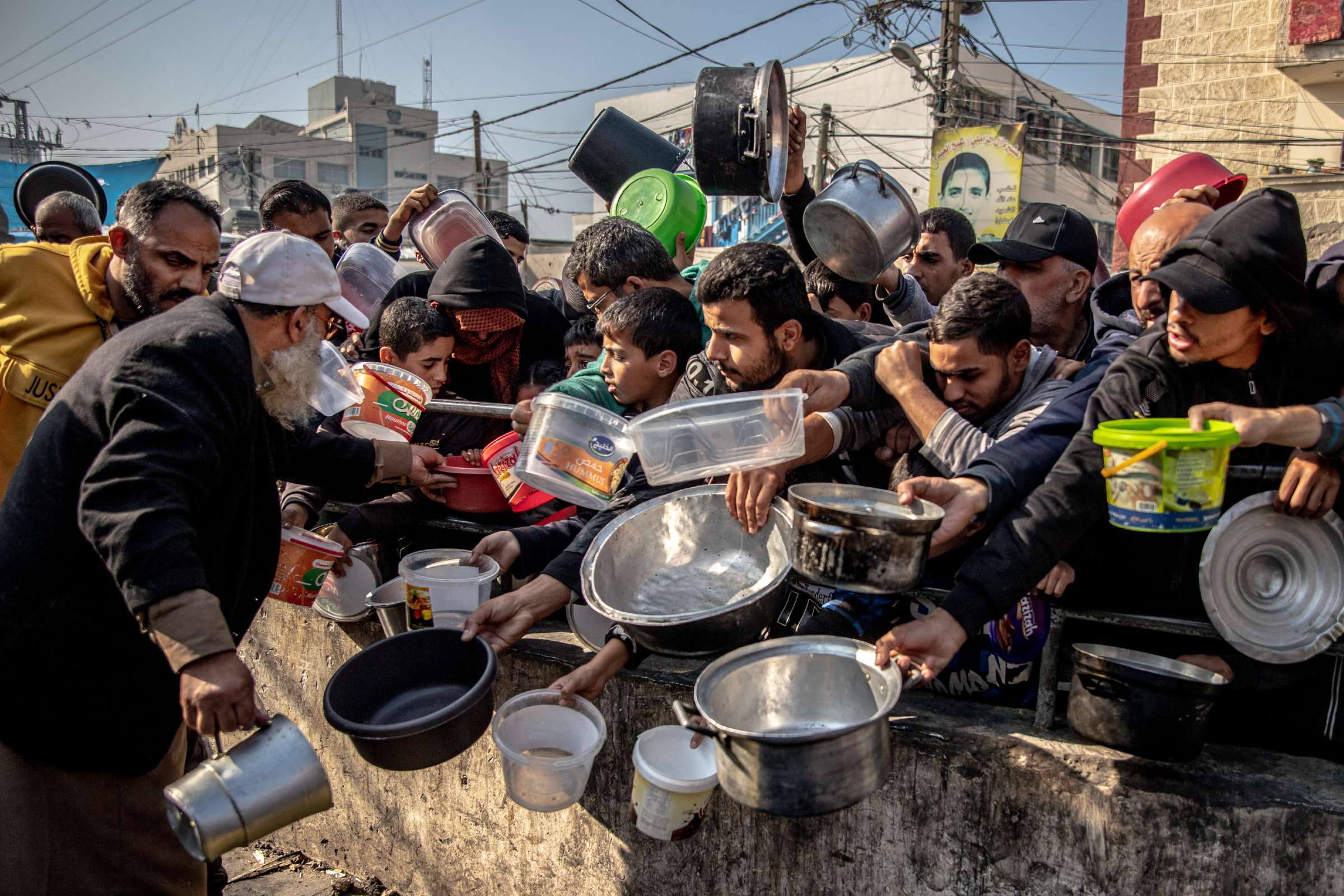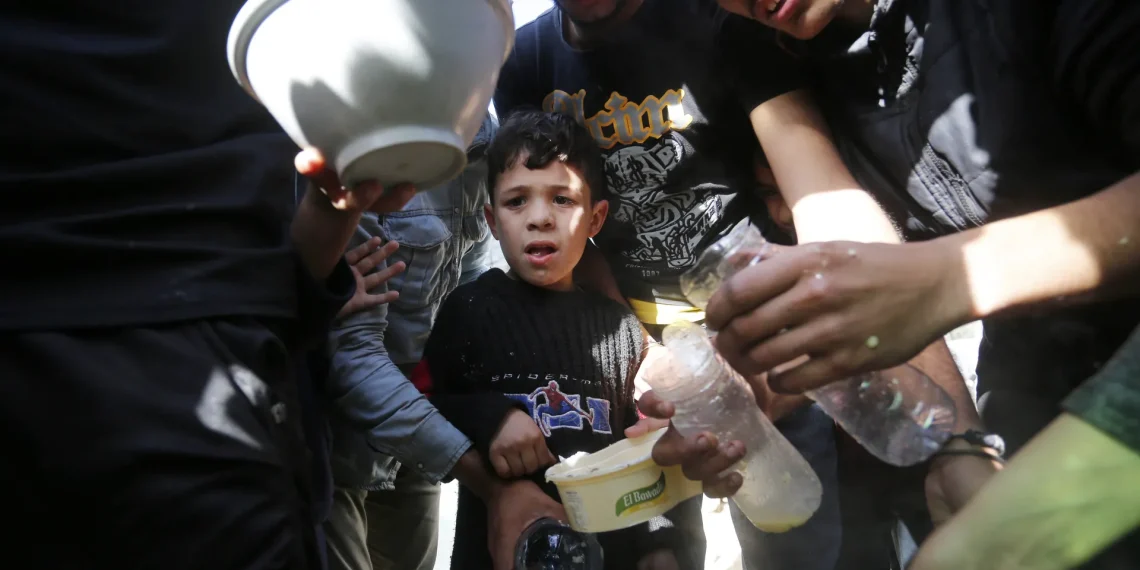Hanadi Gamal Saed El Jamara, a 38-year-old mother of seven in Gaza, speaks of the agonizing hunger her family faces, stating that sleep is their only respite. El Jamara, displaced from northern Gaza, now finds herself begging for food on the streets of Rafah, a southern Gaza city. She strives to provide her children with at least one meal a day while caring for her husband, who battles cancer and diabetes.
As Gaza teeters on the brink of a severe famine, reports from displaced civilians and healthcare workers underscore the harrowing reality. Families go hungry to feed their children, water, if found, is likely undrinkable, and aid distribution becomes chaotic. Even before the recent conflict, two out of three Gazans relied on food support. The blockade imposed by Israel and Egypt over 17 years compounded the challenges, making Gaza’s population highly vulnerable.
Israel’s military operations and siege since October have drastically diminished essential supplies in Gaza, exposing the entire population of around 2.2 million to acute food insecurity. The Integrated Food Security and Nutrition Phase Classification indicates that many are now facing famine conditions. UN officials argue that Israel’s actions are destroying Gaza’s food system and using food as a weapon against the Palestinian people.
Over the past 100 days, Gaza has witnessed mass displacement, neighborhoods reduced to rubble, families wiped out, a surge in deadly diseases, and a decimated medical system. Now, starvation and dehydration pose existential threats. Displaced families report that stress, exacerbated by their inability to protect children from bombardment, compounds the agony of not being able to provide sufficient food. Electricity shortages make refrigeration impossible, living conditions are unsanitary, and overcrowding prevails.
The risk of famine is particularly acute for the 350,000 children under five in Gaza, according to UNICEF. Malnourished children face an 11-fold increased risk of death compared to well-nourished children. The first 1,000 days of a child’s life are crucial for physical and cognitive development. Pregnant women are also at increased risk of miscarriage or premature birth due to severe stress.

Reports indicate that humanitarian aid distribution is poorly regulated, with some not receiving aid at all, while others exploit the situation for profit. Several Western countries have suspended funding to the main UN agency in Gaza, UNRWA, over allegations that some of its staff participated in attacks. Aid agencies emphasize the urgent need for new aid entry routes, more trucks, fewer impediments to the movement of humanitarian workers, and safety guarantees.
The war has also resulted in widespread unemployment, exacerbating the economic strain on Gaza’s residents. Families now face soaring prices, spending significantly more on basic supplies than before the conflict. The chaos, desperation, and hunger in Gaza have created a grim reality where time is running out, and the humanitarian clock is ticking towards famine.





